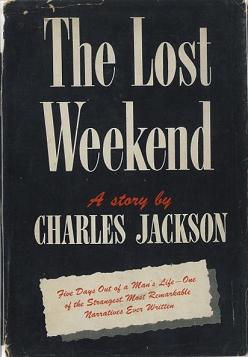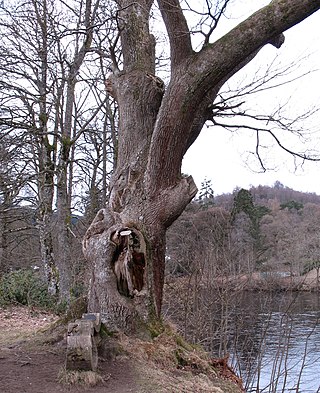See also
- Birnam Oak, an Oak tree in Birnam Wood, Scotland
Birnam Wood is a town in Scotland.
Birnam Wood or Birnamwood may also refer to:
Lincoln most commonly refers to:
Eden may refer to:

Birnamwood is a village in Marathon and Shawano counties in the U.S. state of Wisconsin. It is part of the Wausau, Wisconsin Metropolitan Statistical Area. The population was 818 at the 2010 census. Of this, 802 were in Shawano County, and 16 were in Marathon County. The village is located mostly within the town of Birnamwood in Shawano County; only a small portion extends into the town of Norrie in adjacent Marathon County.
Holy Wood or Holywood may refer to:
Fair Oaks may refer to:
A willow is any of the several hundred species of deciduous trees and shrubs in the genus Salix.
Birchwood or Birch Wood, may refer to:
Birnam is a suburb of Johannesburg, South Africa. It is located in Region E of the City of Johannesburg Metropolitan Municipality.
Birnam may refer to:

Area codes 715 and 534 are telephone area codes in the North American Numbering Plan (NANP) for the U.S. state of Wisconsin. The numbering plan area (NPA) comprises most of the northern part of the state. 715 was one of the original North American area codes created in 1947, while 534 was added in 2010 as an additional code for the same numbering plan area to form an overlay plan.

Dunkeld is a town in Perth and Kinross, Scotland. The location of a historic cathedral, it lies on the north bank of the River Tay, opposite Birnam. Dunkeld lies close to the geological Highland Boundary Fault, and is frequently described as the "Gateway to the Highlands" due to its position on the main road and rail lines north. Dunkeld has a railway station, Dunkeld & Birnam, on the Highland Main Line, and is about 25 kilometres north of Perth on what is now the A9 road. The main road formerly ran through the town, however following modernisation of this road it now passes to the west of Dunkeld.

Dunkeld & Birnam railway station serves the town of Dunkeld and village of Birnam in Perth and Kinross, Scotland. It is located on the Highland Main Line, 15 miles 31 chains (24.8 km) north of Perth and is the first stop on the line north of there, before Pitlochry. Most services are operated by ScotRail, who also manage the station. LNER and Caledonian Sleeper also call some services here.

The Lost Weekend is Charles R. Jackson's first novel, published by Farrar & Rinehart in 1944. The story of a talented but alcoholic writer was praised for its powerful realism, closely reflecting the author’s own experience of alcoholism, from which he was temporarily cured. It served as the basis for the classic 1945 Oscar winning film adaptation.
The Perth and Dunkeld Railway was a Scottish railway company. It was built from a junction with the Scottish Midland Junction Railway at Stanley, north of Perth, to a terminus at Birnam, on the south bank of the River Tay opposite Dunkeld.
Birnam is a village in Perth and Kinross, Scotland. It is located 12 miles (19 km) north of Perth on the A9 road, the main tourist route through Perthshire, in an area of Scotland marketed as Big Tree Country. The village originated from the Victorian era with the coming of the railway in 1856, although the place and name is well known because William Shakespeare mentioned Birnam Wood in Macbeth:
MACBETH: Till Birnam wood remove to Dunsinane/ I cannot taint with fear.

The flora of Scotland is an assemblage of native plant species including over 1,600 vascular plants, more than 1,500 lichens and nearly 1,000 bryophytes. The total number of vascular species is low by world standards but lichens and bryophytes are abundant and the latter form a population of global importance. Various populations of rare fern exist, although the impact of 19th-century collectors threatened the existence of several species. The flora is generally typical of the north-west European part of the Palearctic realm and prominent features of the Scottish flora include boreal Caledonian forest, heather moorland and coastal machair. In addition to the native species of vascular plants there are numerous non-native introductions, now believed to make up some 43% of the species in the country.

The Birnam Oak is an example of Sessile oak at Birnam, Perth and Kinross, Scotland. Sometimes known as Macbeth's oak, as it is a relic of Birnam Wood, mentioned in William Shakespeare's play, the tree is found in a strip of woodland on the south bank of the River Tay. The trunk is 5.5 metres (18 ft) wide and its large spreading branches have latterly been supported on a number of struts to prevent them from collapsing under their own weight. The exact age is unknown, but the girth suggests an age of around 600 years old which would mean it was already a mature tree at the time of Shakespeare's presumed visit to Perthshire in 1589. The tree is listed by Forestry and Land Scotland as one of Scotland's most famous oak trees.

Benjamin Adelbert Cady was a politician and lawyer.

Niel Gow's Oak is a 300-year-old tree near Dunkeld and Birnam, Perth and Kinross, Scotland. It is closely associated with the Scottish fiddler and composer Niel Gow, who lived in nearby Inver. Gow is said to have composed many of his most famous tunes whilst sitting beneath the oak. The connection is commemorated by a plaque and engraved bench. The tree has been entered into the Scottish and European Tree of the Year competitions. The tree was badly damaged by storms in 2011 and 2012.

Birnam Wood is the third novel by New Zealand writer Eleanor Catton. Published in February 2023, the novel follows members of guerilla gardening collective Birnam Wood as, with the help of a charismatic tech billionaire, they undertake a new project on abandoned farmland.